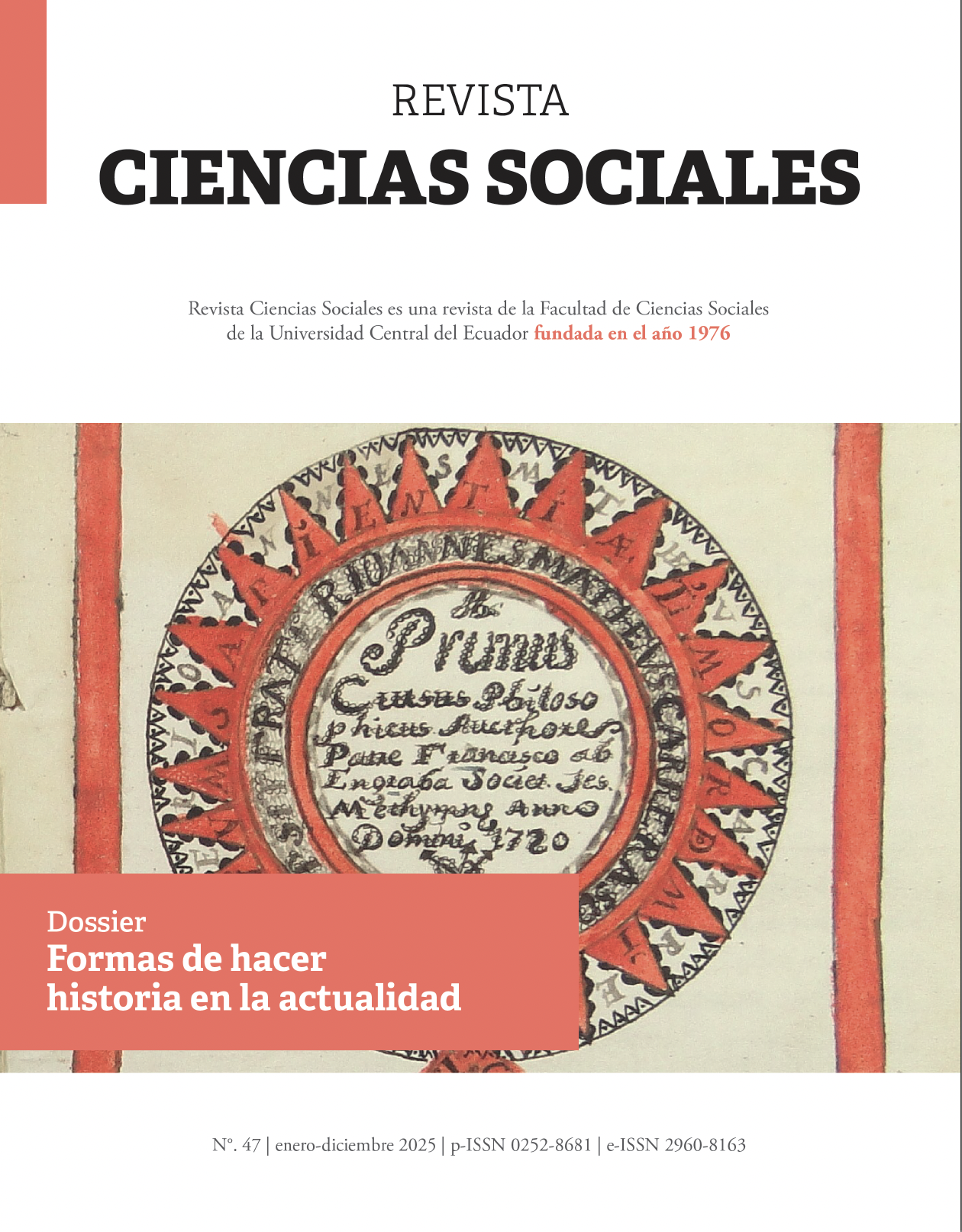Invitación a presentar artículos No. 49
Invitación para presentar artículos/ Call for Papers
Dossier: Filosofía y sociedad. El lugar del pensamiento reflexivo en el siglo XXI
Coordinadores de Dossier:
- Msc Martín Aulestia Calero
- PhD Pablo Meriguet
- PhD José Luis Villacañas
Recepción de artículos: Desde el 22 de septiembre de 2025 hasta el 28 de febrero de 2026
Fecha de Publicación: Julio 2026
Read more about Invitación a presentar artículos No. 49

